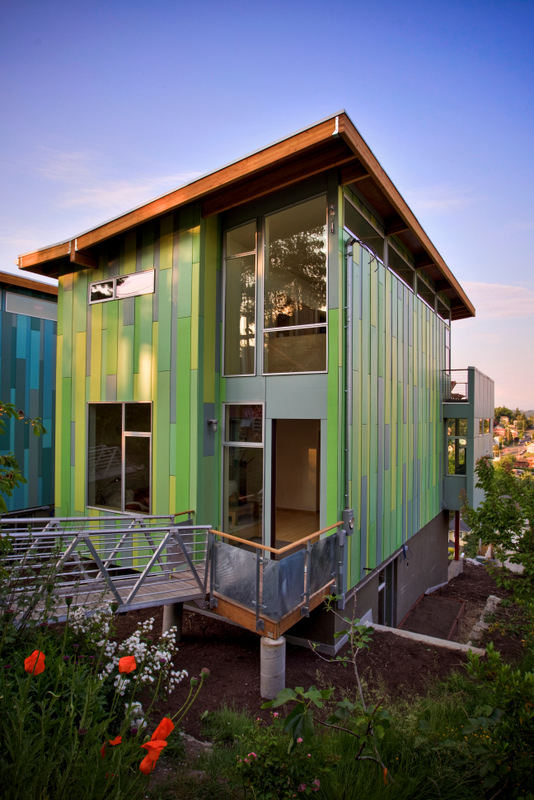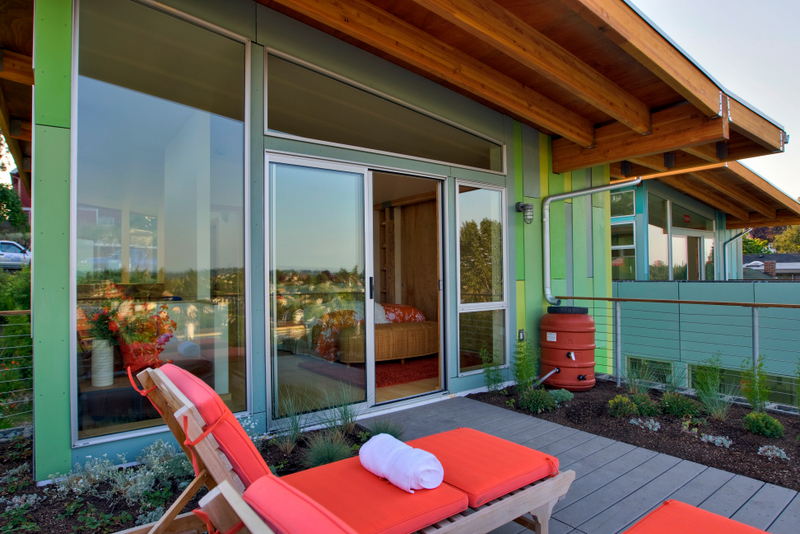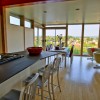Forecasting the Green Job Market
Video
With the United States trying to pull itself out of a recession, something must be done to create more jobs. Some believe the green job market is the key to the future. And so, I have taken some well spread out snapshots examining the prospect of the green job market in this country.
Central Texas
The first snapshot looks at Austin, Texas. Although Texas has seen some of the effects of the recession, particularly in the construction industry, it has not been hit quite so hard overall. RelocateAmerica.com voted the capital city of Texas number three in “America’s Top 100 Places to Live for 2010,” while Money magazine ranked it number two on its Top 10 Big Cities list. Also, Kiplinger’s Personal Finance ranked Austin the best city to live in for the next ten years. Texas’ good economic standing may be allowing elbow room for investing in the green market. Ben Obregon, principal Architect of the Sustainable Design Center in Austin, has seen his business grow at a steady rate, although it was slightly busier three to four years ago. What is interesting is Obregon has seen increased demand for his specialty in bioregionally appropriate architecture, which is architecture that is specifically designed to fit a climate. One of the ways that Obregon tailors his designs to suit central Texas is in straw bale construction. In the past, straw bale construction made up 10 to 15% of business for the Sustainable Design Center. Today, it makes up 50% of their business, especially for residential homes. The reason for the drastic increase is not completely clear to Obregon, but he speculates that it is because people are interested in more energy efficient homes. Introduced in the 19th century, straw bale construction uses exactly that -- bales of straw -- to insulate the walls of a building. This construction method has not only proved to be quite fire resistant and structurally sound, it also withstands time. Straw bale construction also promotes sustainability by using a recyclable and renewable material from local farms.
“Vice president [of Dovetail Solar and Wind] and one of the principal owners, Alan Frasz, estimates that the company has grown an average of roughly 50% a year for the past four years. In 2008 alone, they saw a 240% growth rate."
Pacific Northwest
From sunny central Texas to the drizzly Pacific Northwest, we next look at Washington State. Tony Case is the founder of Case Architects in Seattle. In Washington, although the banking and real estate market has taken a toll on the AEC industry, Case has seen business picking up, even if it is slowly. “It’s going to be a long, slow crawl,” says Case. Observing his clients, Case notes that they are open to building green as long as it shows it is profitable. Winning the trust of the people then becomes a priority. “We’re as real as we can be about the values we have,” claims Case. Demonstrating their genuineness, Case and his associates connect to their community and their surroundings. Washingtonians care about their environment. Bicycling as a form of alternative transportation is extremely popular. The League of American Bicyclists has voted Washington the “Most Bicycle Friendly State” for the third year in a row. Thus, Case focuses projects around public transportation or car-free accessibility. They are also members of a bicycling commuting program. Case Architects promote self-created sustainability designs through aspects including advanced framing and green roof terraces. The goal of advanced framing is to lower material waste and labor costs and to create a more efficient structure. Green roof terraces are basically like having a garden on your roof that helps provide insulation and manage rainwater runoff.


Midwest
Texas and Washington have not been hit as hard by the recession as my home state of Ohio. Ohio’s manufacturing industry made up a large part of its economy in the past but has been in severe decline for decades, and now the recession has put it in dire straits. Because of this situation, Ohioans realize something must be done and are opening up to new possibilities. Befittingly, The Columbus Dispatch printed a few articles in May investigating Ohio’s pursuit of green jobs. Ohio businesses are using their manufacturing savvy for green endeavors that may reconstruct the face of Ohio’s economy. Dovetail Solar and Wind is an experimental company that is seeing fruition. Vice president and a principal owner, Alan Frasz, estimates that the company has grown an average of roughly 50% a year for the past four years. In 2008 alone, they saw a 240% growth rate. Perhaps a reason for Dovetail’s success lies in its beginnings fifteen years ago in Athens, Ohio. Lately, Athens has received attention because of innovative green companies coming out of the area. Frasz considered Athens a nurturing environment because there are many remote big farms in the area. Electric companies would charge a lot to service the farms, causing them to seek an alternative. Even though renewable energy was expensive to install, the farmers found it justifiable in the long run. Frasz also believes that the progressive minded culture was a factor in their openness. From Frasz’s point of view, the green job market is growing at a healthy rate and will eventually be able to stand alone.
In summary, the outlook on the green job market does look hopeful. The openness of a region to green jobs will determine how successful the market will be in that area. Some places naturally have an open mindset. Others are becoming more open out of sheer interest or desperation. Importantly, note that sustainability looks different in each region. What works in Texas may not work in Ohio, or vice versa.
Sustainability Programs
As more people are becoming interested in the green job market, they are seeking training. Around the country colleges are offering more and better programs in the green field. Some colleges that offer reputable programs include:
- Arizona State University – Global Institute of Sustainability
- Carnegie Mellon University (Pittsburgh, Penn.) – Civil and Environment Engineering
- Georgia Institute of Technology – School of Civil and Environmental Engineering
- Montana State University – Sustainable Food and Bio-energy Systems
- University of Texas at Austin – Civil, Architectural and Environmental Engineering
- Hocking College (Logan, Ohio) – Energy Institute, Alternative Energy and Fuel Cells, Automobile Hybrids
- Stark State College (North Canton, Ohio) – Fuel Cell Technology





